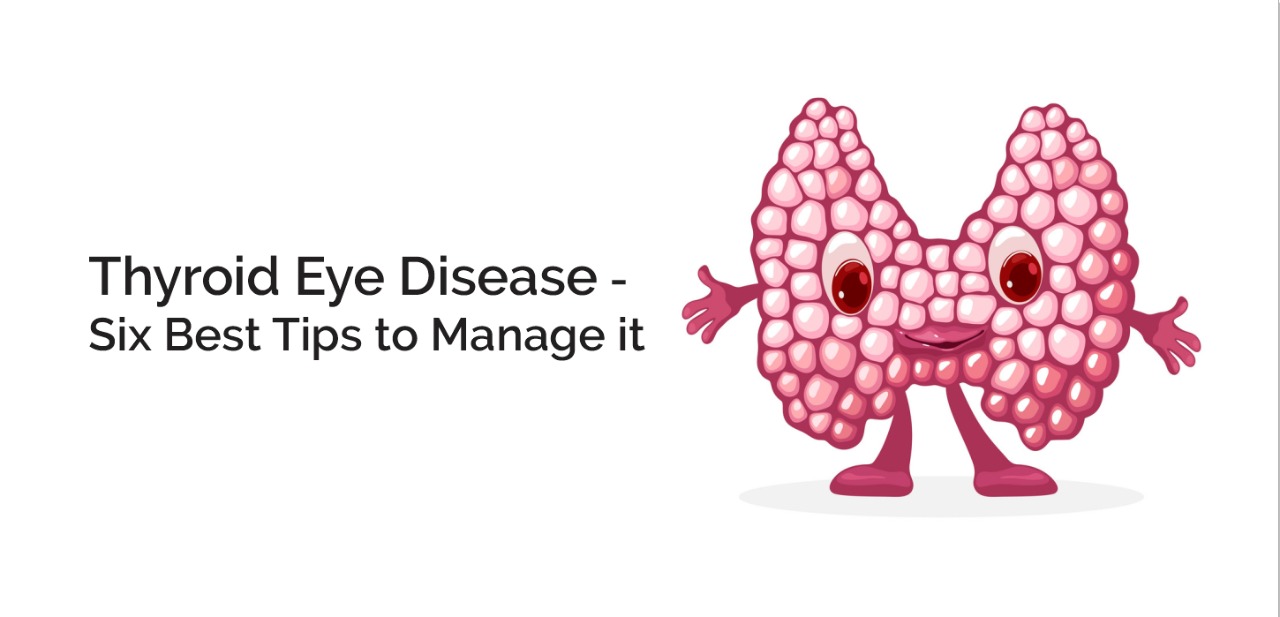

What is Thyroid Eye Disease?
Thyroid Eye Disease (or TED), which is sometimes also referred to as the Grave’s Disease, is one of the most common causes behind adults suffering from orbital diseases today. In the worst cases, this disease can become sight-threatening. Not to worry, though, because some simple tips can help you manage TED and stop it from worsening.
In the past few years, the science of management of Thyroid Eye Diseases has changed. A more proactive approach, rather than simply sitting back and waiting for things to either improve or get worse enough to be treated through surgeries, has been highly encouraged.
Signs and Symptoms of TED
Below are the signs and symptoms of Thyroid Eye Disease:
- Most patients (75-91%) observe eyelid retraction
- Restrictions in eye movement
- Exophthalmos (also called Proptosis) - protruding eyeballs, which is observed by about 60% of patients
- Optic Neuropathy - the damage inflicted to your optic nerve present inside the eye
- Lid lag in downgaze
- Conjunctival injection/inflammation
- Redness in eyes
- Swelling around the eyes area
On observing these signs, you should consult a doctor, an Endocrinologist preferably, to get to know about the underlying health issues.
How to Manage Thyroid Eye Disease?
Upon identifying the signs and symptoms of TED, the methods for Thyroid care need to be taken into consideration. Here we have put together a list of some of the simplest yet effective tips that you should straightaway adopt to manage Thyroid Eye Disease.
1. Quit Smoking
Many studies have been conducted to study the relationship between the severity of TED and smoking. It is revealed that smokers have higher chances of developing the disease further than people who do not smoke and have TED.
In case a patient is undergoing TED treatment and is smoking, then the effect of the treatment also has a high chance of decreasing because of smoking. To promote disease cessation and enhance the chances of treatment outcomes, all people suffering from TED should immediately stop smoking.
2. Eye Drops
Making use of eye drops can help you get immediate relief from all the irritating symptoms of TED, such as inflammation, redness, swelling, and more.
You can use different types of drops like:
- Artificial tears that are available without any prescription and can soothe your eyes by reducing dryness and any sort of irritation in the eyes.
- Lubrication gels that are similar to artificial tears but thicker and can cause blurry vision for some time. It is best to use them before you settle in for the night.
To make the best use of these eye drops, make sure to tilt your head back and then drop them in. In fact, try sleeping with your head in an elevated position on the bed.
3. Try Cool Compressors or Eye Masks
As a part of the conservative therapy to treat Thyroid Eye Disease, it is suggested that you make use of cool compressors or cool eye masks. These will have a low temperature that will help in reducing any swelling around the eyes by significantly decreasing the blood flowing to those areas around your eyes.
If you don’t have either a cool compressor or an eye mask, then you can simply dip a washcloth in cold water and place it on your eyes. Make sure to clean it before reusing it.
4. Supplements
In medical circles, Selenium supplements are often associated with the medical management of TED. Studies point out that Selenium can reduce ocular involvement and slow down the progression of the disease in mild cases of TED.
However, it is better to always consult a doctor before introducing any changes or additions to your medicinal regimen. You might want to consult with an Assurance Endocrinologist to get the best idea about all options available to you for leading a better quality of life with TED.
5. Tape Your Eyes Shut at Night
Having protruding eyes due to excessive swelling in TED can cause you difficulties, especially when you are trying to get a good night’s sleep. By using tape to shut your eyelids, you can make sure that your eyelids stay shut at night and, at the same time, don’t dry out. Special and gentle medical tapes are available for the same.
6. Orbital Radiotherapy
Orbital radiotherapy can be helpful for people facing constant inflammation because of an active and severe case of TED. This proves to be an effective adjunctive therapy. This therapy, however, is not free from its potential list of side effects that include developing an early cataract. Considering all pros and cons with your doctor might be a better way to decide whether or not to go for this therapy.
Conclusion
Living with Thyroid Eye Disease can be a challenging task if you aren’t aware of the simple ways in which you can effectively manage the condition and its symptoms. While all the tips mentioned here are useful, they should be paired with consulting a medical professional to reap the best benefits.